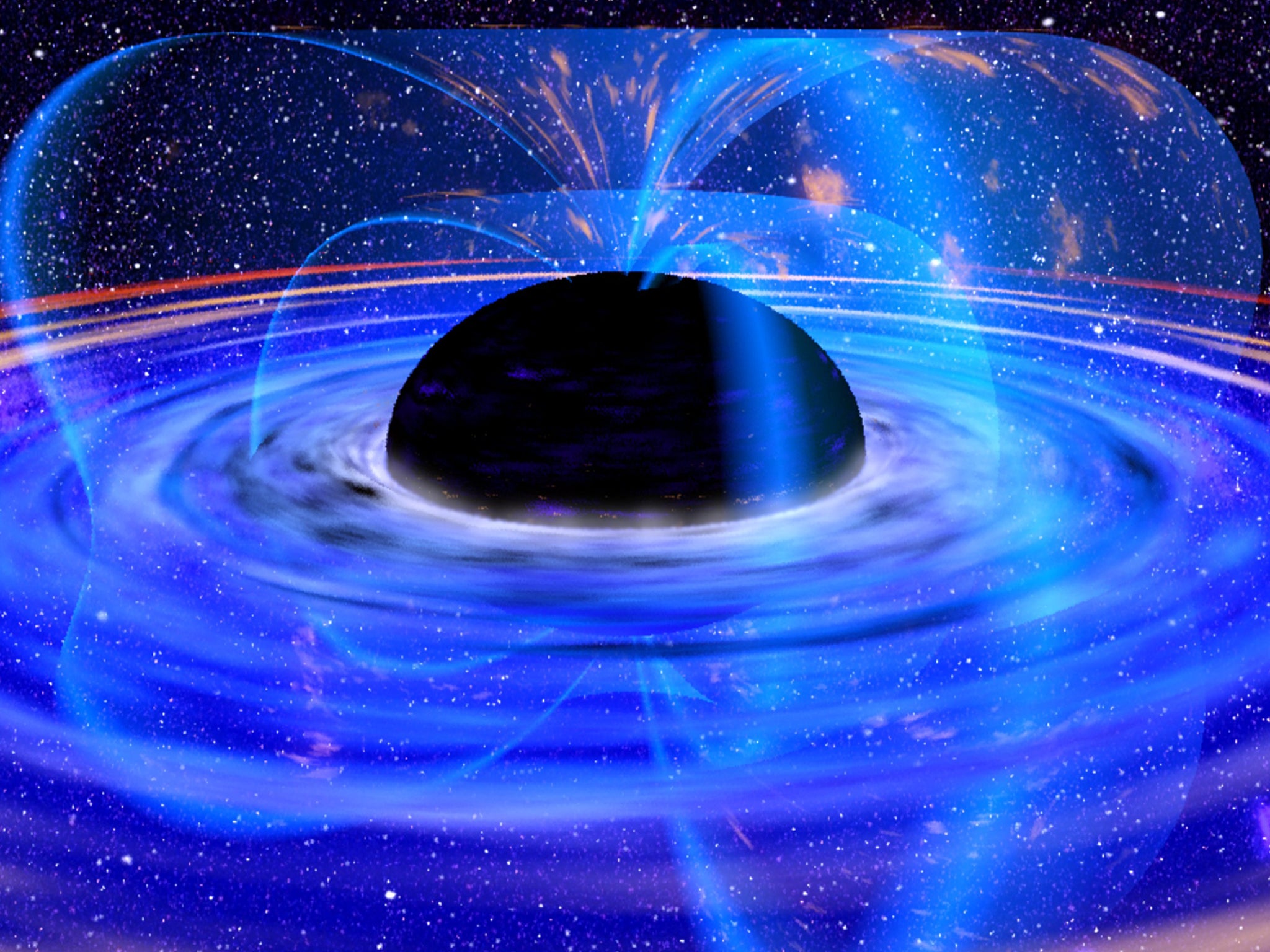Stephen Hawking admits the biggest blunder of his scientific career - early belief that everything swallowed up by a black hole must be lost forever
Cosmologist also predicts the end of humanity on Earth and urges continuation of space exploration

The cosmologist Stephen Hawking has described the biggest blunder of his scientific career – his early belief that everything swallowed up by a black hole must be lost forever.
Professor Hawking said that there is one thing that does in fact escape from black holes – radiation. He has previously said that his discovery of what is now known as Hawking radiation was one of his proudest achievements.
In a lecture at a hospital in Los Angeles that has pioneered research into stem-cell treatments for degenerative diseases – including his own condition of motor neuron disease – Professor Hawking described the blunder that had initially blinded him to one of his greatest insights into the Universe.
Hawking radiation is emitted from the rim of a black hole, known as the event horizon, where all the matter that is falling into the abyss is stretched out like spaghetti. Even light does not escape from a black hole – except for Hawking radiation.
Professor Hawking, 71, was paraphrasing a statement made by Albert Einstein who had altered his general theory of relativity in the early 1900s to take into account his fervent belief that the Universe was not expanding.
Einstein realised his mistake a few years later when astronomers discovered that stars were moving away at great speed, suggesting that the Universe was expanding. Einstein described the gaffe as the biggest blunder of his career.
Professor Hawking gave his hour-long lecture on Tuesday at the Cedars-Sinai Regenerative Medicine Institute where he saw first-hand the stem cell work that aims to treat the neurological disease that has kept him in a wheelchair for 50 years.
“To understand the universe at the deepest level, we have to understand why is there something rather than nothing,” Hawking said, speaking through a computer program that converts his eye and cheek movements into spoken speech. “Why do we exist? Why this particular set of laws, and not some other? I believe the answers to all of these things is M-theory.”
M-theory combines several ideas in physics and mathematics, including the suggestion that there are several dimensions in the fabric of space-time. Professor Hawking has been a staunch supporter of m-theory, believing that it will lead to a single, unified theory to explain all the laws and observations of physics.
Professor Hawking said that humans must explore space if we are to survive the coming millennium. “We must continue to go into space for humanity. We won’t survive another 1,000 years without escaping our fragile planet,” he said.
Following a tour of the medical center’s stem-cell laboratories, which are directed toward studying new treatments for motor-neuron disease, Hawking drew parallels between the centre’s work in discovering the mechanisms of disease and his quest to understand the fundamental rules of the universe.
“If you understand how the Universe operates, you control it in a way,” said the author of “A Brief History of Time,” which has sold several million copies since it was first published in 1988. Hawking held the post of Lucasian professor of mathematics at Cambridge University until his retirement in 2009.
Join our commenting forum
Join thought-provoking conversations, follow other Independent readers and see their replies
Comments